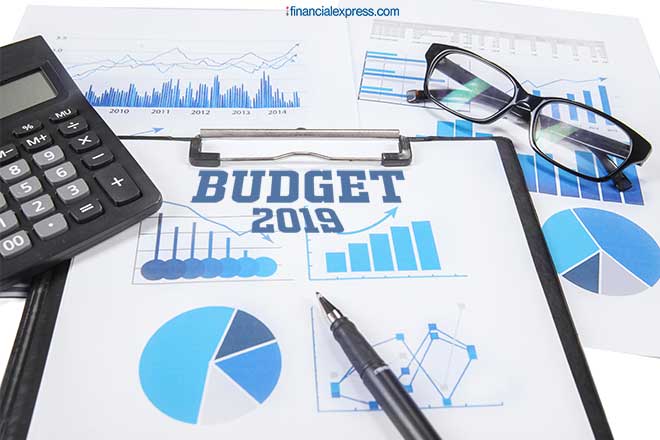By Pritish Raj
Budget 2019 India: While the FM has offered a host of incentives for electric vehicles, which are still to pick up either by way of manufacturing or consumer choice, the automobile industry in general got a setback because of additional levy on petrol and diesel. The move will adversely impact the demand for passenger vehicles and two-wheelers, as ownership cost will go up further. As is known, the auto industry is reeling under a slowdown on the back of high finance and insurance cost.
The excise duty and road and infrastructure cess on auto fuels have been raised by `2 per litre each to raise over `28,000 crore. After taking into account local value added tax (VAT), which is charged after adding central excise duty on base price, the increase in petrol price would be over `2.5 per litre and that on diesel `2.3. On the contrary, electric vehicles have been given sops like an additional income tax benefit of `1.5 lakh on interest on loan taken to purchase such vehicles, which will result in tax savings for the consumers.
Assuming that a consumer buys an electric car on a loan of `12 lakh for five years with an interest of 10% per annum, the interest amount of `1.2 lakh every year can be reduced from the taxable income of the buyer. A 20% income tax on `1.2 lakh would be `24,000, which is what the buyer would save every year for five years. A consumer in the 10% tax bracket would save `12,000 per year. The finance minister said the benefits could go up to `2.5 lakh over the loan period in case the loan amount or the payback period is higher.
Experts believe the move would address the concern of the upfront cost of purchasing electric vehicles, which is at least 30% higher than the conventional ones. The sops could also encourage consumers to buy EVs, which currently account for less than 1% of the total vehicles sold in India, with lack of charging infrastructure and high prices being a major deterrent, as nearly 75% of the components are imported.
Tarun Mehta, CEO and co-founder, Ather Energy, said additional income tax reduction is a major boost for end consumers to purchase EVs. “It now becomes imperative that OEMs chalk out plans that allow the industry to scale up and meet the demand for compelling products,” Mehta said. According to Naveen Munjal, this will encourage manufacturers to further invest in the ecosystem, thereby lowering both crude oil imports and air pollution.
“Such directives will boost rate of EV adoption in the country and will act as a catalyst in the government’s aim of faster adoption of electric vehicles,” Munjal said. However, the same enthusiasm is not shared by conventional auto manufacturers. Rajan Wadhera, president, automotive sector, Mahindra and Mahindra, said the announcements will not help the auto industry in emerging from the slowdown it is facing. “Putting an additional cess on petrol and diesel could drive up costs of vehicles, especially where volumes are low and localisation not viable. The overall cost of operations of transport could further aggravate the slowdown.”
Shekar Viswanathan, vice-chairman and whole-time director, Toyota Kirloskar Motor, said the focus of taxation should not only be restricted to promote and facilitate the shift to green mobilities. “It should also be towards all other means that contribute effectively to increased fuel economy and reduced tailpipe emissions,” he said.
For EVs, the government also proposed to do away with the custom duties imposed on several electric vehicle components, including lithium ion cells, e-drive assembly, on-board charger and the charging gun, which would further cut down the cost of the vehicles and help local battery manufacturers to scale up the business.
Batteries account for nearly 40% of the total vehicle cost and lithium ion cells, which is a major component of the battery, is imported by all the manufacturers, making the vehicle costlier than global standards. Currently, no company manufacturers lithium ion cells in India.
Relief for the EV industry comes at a time when Niti Aayog has proposed to convert all two-wheelers up to 150cc to electric by 2025 and three-wheelers by 2023. The proposal has already met with sharp criticism from players like Bajaj Auto, Hero MotoCorp and TVS Motor Co, who have termed the move as shocking and warned of job losses.
Two-wheelers up to 150cc account for nearly 80% of the total vehicles sold, and complete transition to electric would require massive investment by the companies. The government has also moved the GST Council to lower the GST rate on electric vehicles from 12% to 5%. However, the conventional two-wheeler manufacturers demand for lower GST—from 28% to 18%—hasn’t met with a favourable response.
The Budget also proposed to launch a scheme to invite global companies through a transparent competitive bidding to set up mega-manufacturing plants of lithium storage batteries and solar electric charging infrastructure, among others, and provide them investment-linked income tax exemptions under Section 35AD of the income tax Act, and other indirect tax benefits.
Sohinder Gill, DG, Society of Manufacturers of Electric Vehicles (SMEV), said the proposal will help in creation of a local manufacturing base and encourage component manufacturers to invest in the sector. “To make India an EV manufacturing hub, decision on incentivising EV manufacturing by extending benefits is a move in the right direction,” Gill said.


